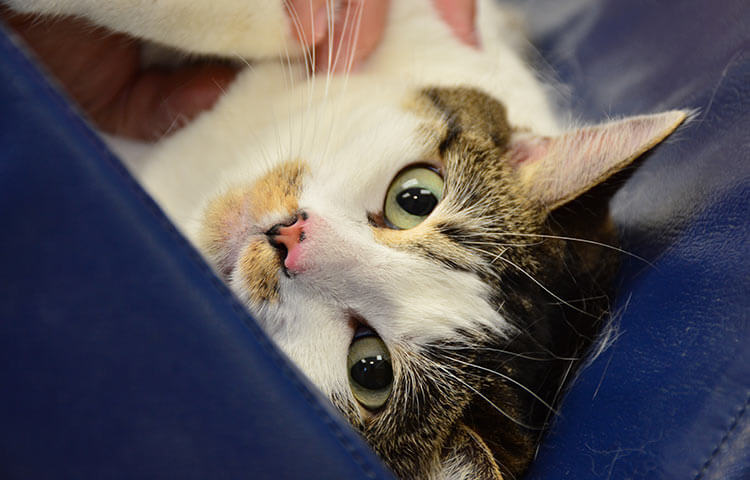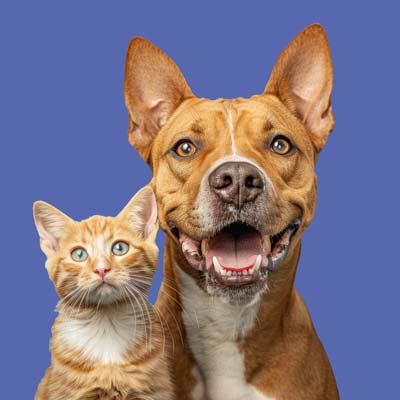Pet Loss and Grief Counseling
At Crystal Lake Veterinary Hospital, we understand the deep bond you share with your pet and the profound grief that comes with their loss. We are here to support you through every step, from making end-of-life decisions to navigating the healing process. With resources like grief counseling, support groups, and after-care services through Trusted Journey, we aim to provide comfort and dignity for both you and your beloved companion during this difficult time.

Quality of Life Scale
Click here to view or download The Association for Pet Loss & Bereavement’s Quality of Life scale.
http://www.aplb.org/resources/quality-of-life_scale.php
Click here to view or download The American Association for the Prevention of Cruelty to Animals’ (ASPCA) guide for end of life care.
https://www.aspca.org/pet-care/general-pet-care/end-life-care
Anticipatory Grief
This form of grief is experienced before the actual loss of your companion animal. Anticipatory grief is typically brought about by the diagnosis of a pet’s terminal illness and/or the decision to euthanize. The decision to euthanize your companion animal may be one of the most difficult to make. It involves ending the life of your beloved companion and changing the unique bond that you share with your animal. However, the decision to euthanize also involves a very gentle and caring way to end the life of your animal friend.
After- Death Care
We partner with Trusted Journey for all after-death care. As life long pet owners, Trusted Journey appreciates that your pet is just as important to you as a close family member. They understand that it is difficult for you to say goodbye to your beloved best friend. Pet cremation is a way to memorialize your dog, cat or family pet’s memory.
When your pet passes away, your pet will be cared for with the compassion and dignity that they deserve. Every consideration is made by Trusted Journey staff to ensure that your pet is handled with care and respect during your pet’s after-death care.
Trusted Journey offers:
- Return of cremains to CLVH
- Complete identification, including identification tags that remain with your pet throughout the entire cremation process
- Affordable decorative urns and memorial products
- Private remembrance services
- Option to view cremation upon request
- Pet Compassion Careline — 24/7 grief support. Call 855.245.8214 to reach a counselor.
Please visit Trusted Journey’s website, https://www.trustedjourney.com/, for specific details.
Pet Loss
The death of your companion animal may be one of the most significant losses of your life. With this profound loss comes grief and its associated emotional and physical manifestations: sadness, anger, guilt, anxiety, helplessness, crying, fatigue, or changes in appetite and sleep patterns. It is important to know that these feelings are normal, and that grieving is a necessary part of the healing process.
The loss of a pet can be especially hard on children and may often be trivialized or overlooked. How to help children cope with loss of a beloved pet?
Grieving
Grieving is the natural way that your mind and body adjust to a loss and heal your emotional wounds. We strongly encourage you to allow yourself to grieve in a way that gives you the most comfort. Allowing yourself to feel the sadness, anger, anguish, and loss will aid the healing process. Conversely, repressing your feelings may actually prolong your sadness and the time for recovery. During this time you may need the emotional support of family, friends, your veterinarian, and perhaps a grief counselor.
The amount of time required to heal varies considerably, ranging from days to years. Although you may feel that you have finished grieving, feelings of sadness may re-emerge with a holiday, your pet’s birthday, or the anniversary of your pet’s death. For this reason, some experts suggest that you give yourself, at a minimum, one year to grieve.
Support Groups and Grief Helplines
The Chicago Veterinary Medical Association offers a pet loss helpline and a free support group that meets once a month: http://www.chicagovma.org/pet-loss-support/
The Anti-Cruelty Society also offers a Pet Loss Support group that meets twice a month and is free: www.anticruelty.org


